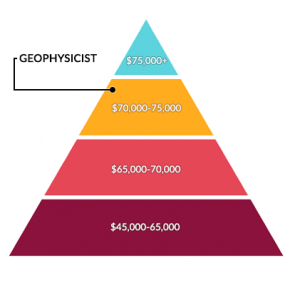All Categories
Featured
Table of Contents
Geophysics Jobs in Alfred Cove WA 2020
This work is progressively contracted out, so consultancies offer another source of work. Consultancy firms differ in size, from really small companies to big multinationals. Some consultancies are rather specialised in using particular geophysical techniques or working in specific areas, while others use a more diverse variety of services to their customers.
The extraction of gas from garbage dump websites is another area of employment and this may grow in the future. Exploration business might carry out work for building and construction firms, public utility, mining companies and environmental agencies, so geophysicists may be used in any of these settings. Other companies consist of: geological surveysgovernment bodies and agenciesuniversities and research study institutes.


Vacancies may be noted in the oil and gas sector press. Recruitment is affected by oil rate variations and the level of competitors for positions varies depending upon this. Professions Days, which cover the complete series of geoscience professions and are usually attended by a number of crucial industry employers, are run by The Geological Society.
Geophysical Survey - Suffolk Heritage Explorer in Safety Bay Australia 2021
A few of the big oil and gas business offer a complete two-year structured training program across the breadth of geophysics, including the chance to experience operate in different groups prior to specialising in one area. Your training may consist of deal with: existing wellsmagnetic and gravitational potential field information analysisresearchrock analysis. It's more normal for your preliminary training to be supplied on the task.

There may be a probationary duration during which you work along with a knowledgeable colleague. Competency-based appraisals happen regularly in most firms. In smaller sized firms, and for scholastic posts, there is not likely to be any official training - you'll be expected to begin work straightaway and get skills as you go along.
If you work for a smaller sized business, you might find that you need to take responsibility for setting up and funding your own advancement and training. If you have a geology degree, membership of The Geological Society can be useful for networking and for maintaining to date with the market.
What Are Geological, Geochemical, in Oakford Oz 2020
You might likewise find it useful to join the PESGB (The Petroleum Exploration Society of Great Britain, which has a geophysics special interest group. After a probationary period, and as soon as you have actually gained some experience, you could advance to senior geophysicist, then team leader and then into a senior function in management.
The ease of motion between functions depends on the business structure. Study at Masters or Ph, D level in a subject associated to geophysics or geosciences might assist with your career development and development. The employment market within the oil and gas industry is very depending on price and this might impact your opportunities for profession development.
However, not all jobs are reliant on the oil and gas markets. For skilled geophysicists, freelance consultancy uses an excellent route for profession development. You can likewise specialise in a specific area of geophysics. As a geophysicist, you're most likely to have several jobs throughout your working life. International movement is essential for handling peaks and troughs in different countries at different times.
Introducing Geophysical Surveying in Hillarys WA 2021
From geophysics, it's possible to concentrate on seismology (completing additional training to become a seismic interpreter) or to move into associated areas such as engineering geology or threat forecast.
Choosing what to study in college is a hard choice. Even if you understand that your field of interest depends on science, what program of research study is right for you? If you make the choice to significant in physical and life sciences and pursue a career as a geophysicist, you're preparing for an amazing and rewarding occupation.
The first action to attaining your objective of ending up being a geophysicist is earning a degree. Even for entry-level positions in the field of geoscience, you'll require a bachelor's degree (a geophysicist college degree) from a recognized college or university. Geophysicists should be able to: evaluate rocks, pictures, and other pieces of data carry out research both in the field and in laboratories produce maps and charts of their findings compose reports To achieve all this, trainees require a specialized education for geophysicist careers.
As specified above, you'll need a bachelor's degree in geoscience or an associated discipline, such as a physical science or a life sciences, to land an entry-level job. But trainees can also prepare by majoring in topics like: Biology Chemistry Computer system science Engineering Mathematics Physics The above geophysicist majors provide a more generalized approach to a single scientific discipline, but many programs need trainees to take several geology course.
Table of Contents
Latest Posts
Geophysical And Geotechnical Assessment in Mount Hawthorn Western Australia 2020
Geophysicist Bob Embley: Ocean Exploration Careers in Alexander Heights Oz 2022
Geophysical Surveys: Definition & Methods in Woodlands Western Australia 2021
More
Latest Posts
Geophysical And Geotechnical Assessment in Mount Hawthorn Western Australia 2020
Geophysicist Bob Embley: Ocean Exploration Careers in Alexander Heights Oz 2022
Geophysical Surveys: Definition & Methods in Woodlands Western Australia 2021